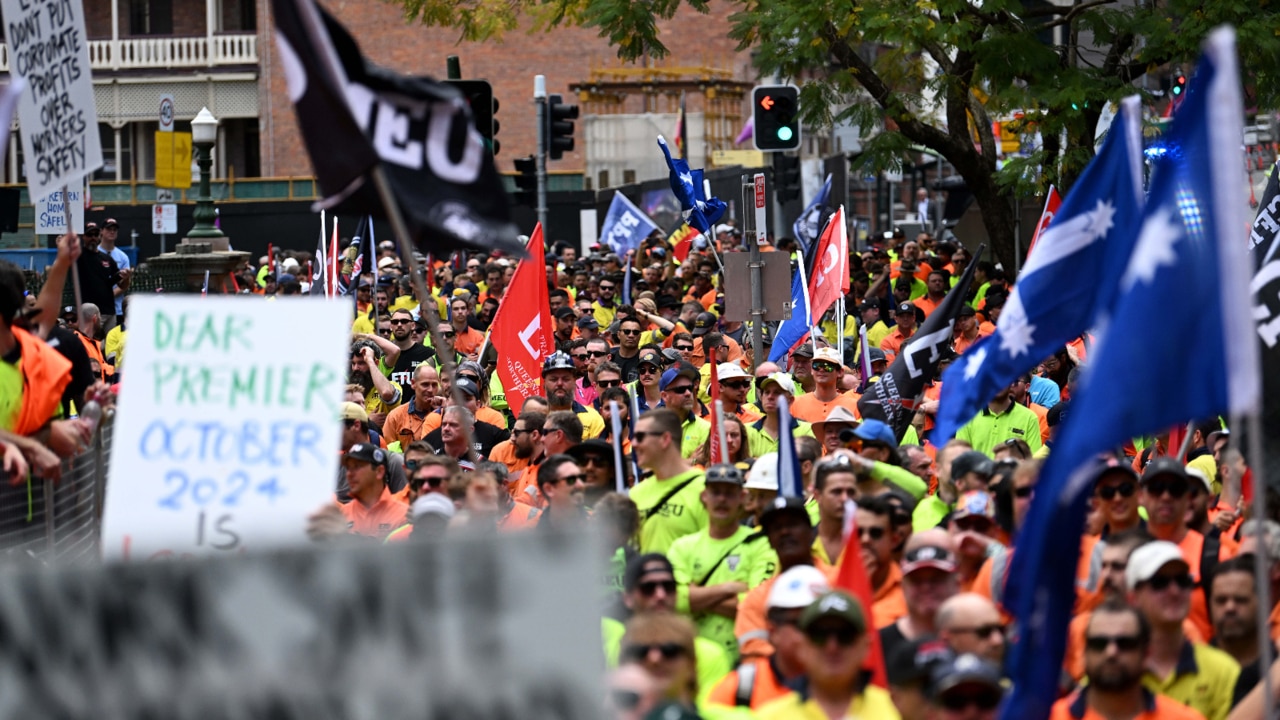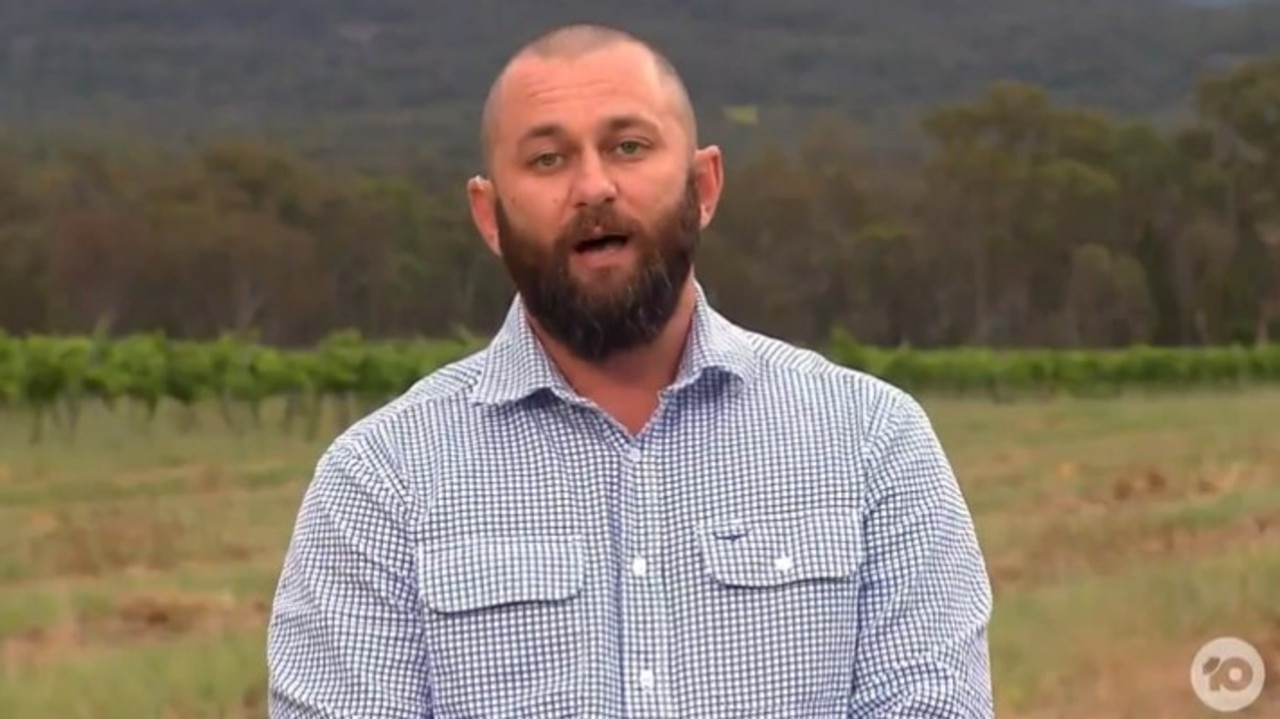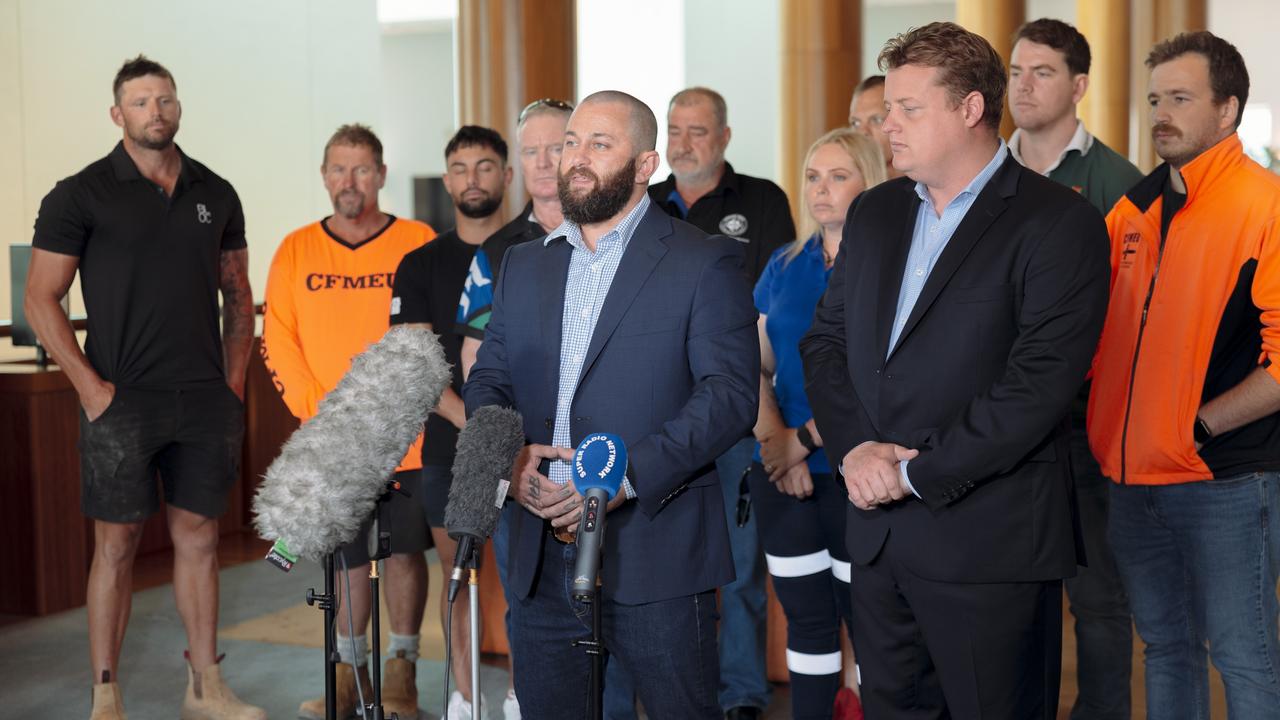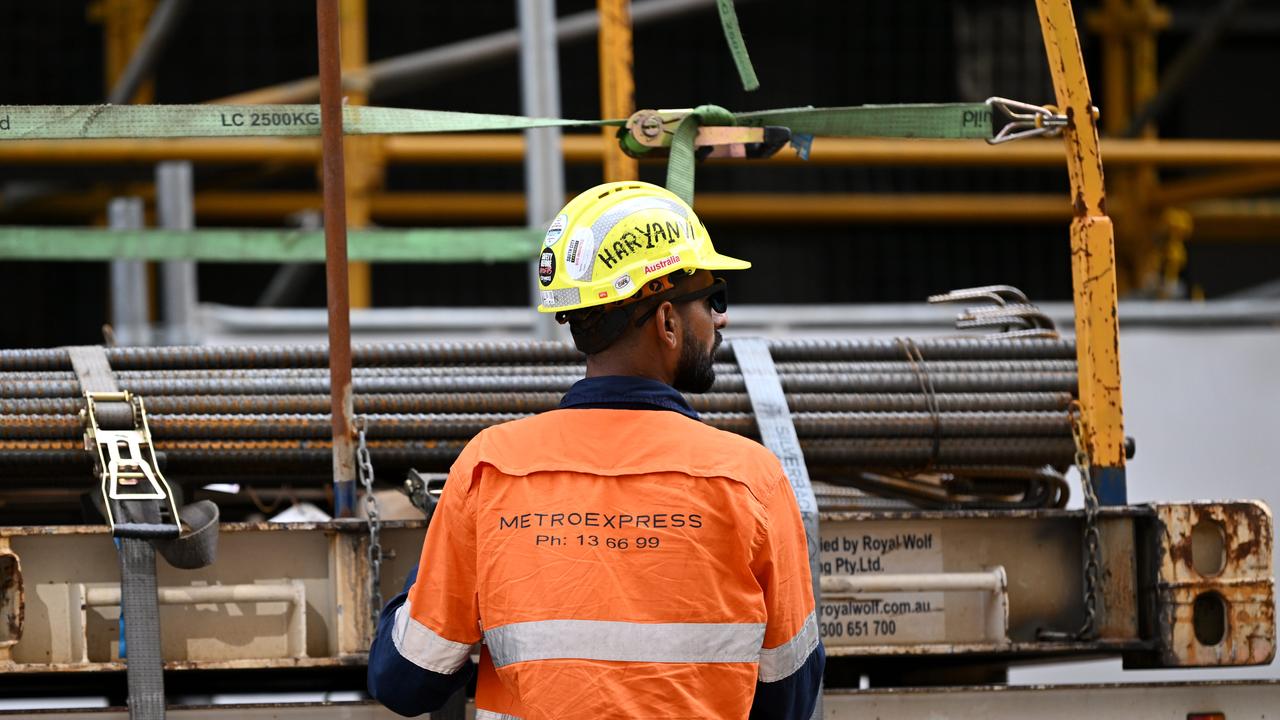‘Given a death sentence’: Former stonemason speaks on Australia’s killer stone ban
A former tradie has revealed the bittersweet feeling he feels over the banning of a popular construction material which derailed his life.

A former stonemason, who contracted a potentially fatal illness from working on engineered stone, says news of an incoming national ban on the substance is “bittersweet.”
Kyle Goodwin spent a decade as a stonemason before he was diagnosed as having silicosis; an incurable lung condition caused by inhaling silica dust when engineered stone, like those used in some kitchen and bathroom benchtops, are cut into.
He spoke to The Project on Wednesday night, hours after it was announced Australia will become the first country in the world to ban engineered stone.
“Knowing that what is going to kill me, and what is going to kill my friends, was essentially a preventable disease … we just went to work and got given a death sentence,” Mr Goodwin told the Network Ten panel show.
“And so that’s why I’m so proud to be part of this movement, to have this product banned in this country, and Australia leading the way, being a world-first is such an amazing achievement.”

The move comes after a lengthy campaign to prohibit the deadly material, with the ban to take effect from July 1 next year.
“It’s bittersweet in the sense that it’s taken some of us to be diagnosed and some of us to die, but today is a great day for the safety of young workers in this
country,” Mr Godwin said.
“My life is affected by it with my breathing being heavy, my fatigue. I suffer from coughing fits, and there’s still a lot of mental health (issues) that goes along with it.”
Kyle said those tradespeople who still have to work with engineered stone before the ban kicks in should do so as safely as they possibly can.
“And if their workplace doesn’t seem safe to them, then don’t do it,” he said.
“This is a dangerous product and anyone who disputes that no longer has grounds to dispute it. The Federal Government has put a ban on this product being used in this country, and so if you choose to work with this product up until that date, do so as safely as possible.
“I know that people have jobs and people have contracts to fulfil and not everyone can just drop tools tomorrow. It’s not that simple. But it’s a great step in the right direction.”
The CFMEU – which led the Stop the Killer Stone campaign calling for a total ban on the import, manufacture and use of engineered stone – hailed the announcement.
Union secretary Zach Smith said the decision was “life-saving”.
“This is a significant decision, but it’s most importantly an important week for the thousands of workers that have been forced to use this product which has caused them to contract silicosis,” he said.

“We know that as many as one-in-four workers that are using engineered stone are contracting silicosis and other life-ending dust diseases.
“This decision today will stop the deadly scourge in its tracks.”
It’s estimated up to 600,000 Australian workers are potentially being exposed to silica dust each year, with hundreds of lung disease diagnoses related to exposure confirmed annually.
Mr Smith said the announcement was a “massive victory” for impacted workers, including former stonemason Kyle Goodwin who was diagnosed with the disease five years ago and told by doctors that he had between five to eight years to live.
The 38-year-old said since his diagnosis his symptoms had grown “consistently worse”.
“This announcement is a massive victory for people like Kyle Goodwin, the former stonemason who bravely fronted our union’s campaign after contracting incurable silicosis from simply doing his job,” Mr Smith said.
“Kyle selflessly dedicated a huge chunk of his remaining days to stopping other workers from being given the same unthinkable diagnosis.
“The CFMEU is ready to help governments implement the July 1 ban on the import, manufacture, and use of engineered stone.”
The union had earlier called for its own ban on July 1.
Bunnings and Ikea have in recent months made announcements about phasing out the sale of products with engineered stone.

The country’s peak body for public health welcomed the announcement, paying tribute to workers who had suffered silicosis and other respiratory illnesses as a result of doing their job.
“The extreme levels of silica in these products has led to an enormous increase in tradespeople working with these products having their lungs irreparably damaged,” adjunct professor Terry Slevin from the Public Health Association of Australia said.
“This was unequivocally caused by using these products, in their normal work. That cannot and should not continue, so this ban shows the system can work. This is an important day to be celebrated.”
Queensland Industrial Relations Minister Grace Grace said she was “extremely proud” that her state had led the national campaign.
“All workers have a right to turn up to a safe and healthy workplace, and I’m proud to be part of a government which has helped deliver this key measure to protect workers,” she said.
Tasmania is understood to have voted against the national ban, and Mr Smith called on the state to put lives ahead of politics.
“If you refuse to implement this ban, if you oppose this ban, you will have blood on your hands,” he said.
“This is not a matter to play politics on, we need you to come on board.”

The union says the years ahead will involve working with workers engaging with the “legacy” of engineered stone – like carrying out renovations with the material.
“Our union is advocating for a system similar to the way we handled legacy issues around asbestos, with properly trained and qualified workers handling engineered stone” he said.
“There’s a lot of this product in Australian homes and commercial spaces, and it’s important that people are properly trained and qualified … It will still pose a risk to anyone working with this product into the future.”
Law firm Maurice Blackburn, which represents hundreds of workers who have been diagnosed with silicosis and other silica-related diseases, welcomed the announcement.
“In our line of work, every day we see the devastating impacts of exposure to deadly silica dust,” principal lawyer Jonathan Walsh said in a statement.
“The popularity of engineered stone products, like kitchen and bathroom benchtops, has caused significant harm to workers exposed to silica.
“This ban will drastically reduce the number of people affected by silicosis and related diseases in the future.”
Safe Work Australia said they would act immediately to progress the decision.
“Now that a prohibition has been agreed by WHS ministers, Safe Work Australia will progress amendments to the model WHS Regulations and develop guidance to support PCBUs and workers understand and prepare for the change,” chief executive Marie Boland said.



